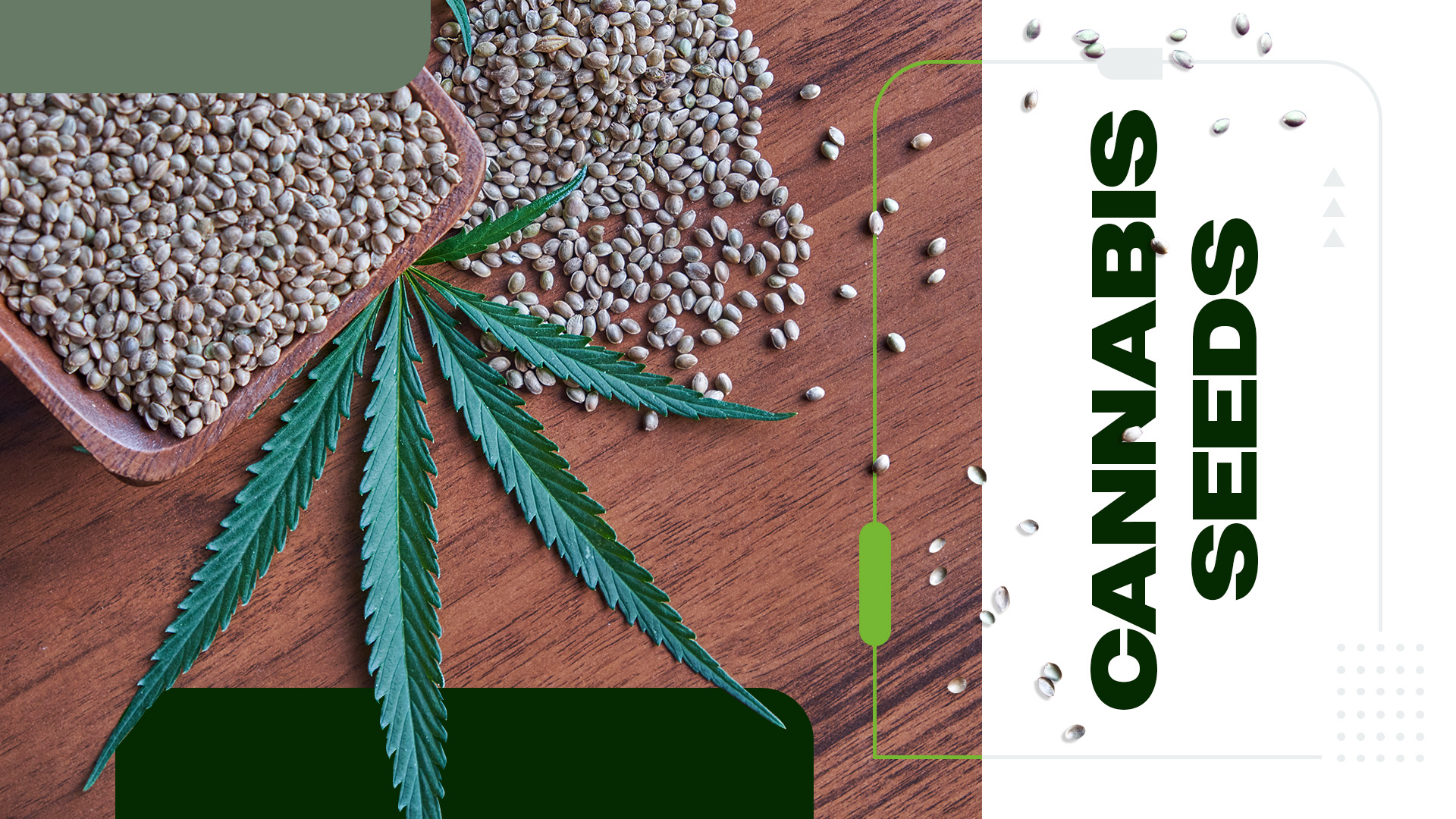Have you ever wondered how long cannabis seeds last? As with any organic material, the passage of time inevitably affects the viability of cannabis seeds. While properly stored seeds can remain viable for many years, germination rates tend to decline over time. Just like people age and lose reproductivity, so do seeds.
Whether you’re a seasoned cultivator or a novice gardener, this article will equip you with the knowledge of how long your seeds are expected to last and the requisite knowledge you need to ensure your cannabis seeds stand the test of time.
Optimal Storage Conditions: The Key to Seed Longevity
How long cannabis seeds will last hinges on meticulous attention to storage conditions. Temperature, humidity, and light exposure are all important factors that can impact seed longevity. To safeguard seeds against degradation, storing them in an environment that mimics their natural habitat—a cool, dark, and dry setting–is of utmost importance.
For example, when it comes to temperature, cannabis seeds are best stored at stable, moderate temperatures, typically between 5-7°C (41-45°F). Random temperature changes can cause stress and compromise seed viability. It’s best to store seeds in a refrigerator or freezer to maintain a consistent temperature, hence reducing the risk of deterioration.
Just as important as temperature control is humidity regulation, excessive moisture can promote the growth of mold and hasten seed deterioration. On the other hand, excessively dry conditions can lead to desiccation and loss of viability. Relative humidity of around 5-10% is best for storing cannabis seeds. To achieve this, airtight containers—preferably made of glass or plastic— are the best options to help shield seeds from moisture and maintain stable humidity levels.
Exposure to light should also be reduced as cannabis seeds are also predisposed to photodegradation. It’s like the sun giving your seeds a sunburn, making them less effective when you want to grow them into big, healthy plants.
UV radiation can degrade seed quality over time, reducing germination rates and the overall vigor of the seed. To protect seeds from sunlight, store them in opaque containers or dark storage bags.
Why You Should Get Your Medical Marijuana Card
Veriheal has satisfied millions of patients nationwide by giving them access to these benefits
- Larger purchase limits
- Peace of mind
- Enhanced legal protection
- Access to higher potency strains
- Save up to 25% on cannabis purchases
- Skip the line at the dispensary
Genetic Resilience: Choosing Strains for Longevity
Another important factor at play when it comes to determining the longevity of cannabis seeds is the plant’s genetic strain. As with all plants, the strain of the cannabis plant is another important determinant of its longevity. Some strains are popular for productivity, making them sought-after choices among growers who place emphasis on longevity.
Over generations, landrace strains, such as Hindu Kush, Durban Poison, and Colombian Gold, have evolved in their native environments. Through adaptations to their specific climates and conditions, these heirloom varieties boast genetic resilience. This means their seeds can stay viable over very long periods, often spanning up to five years or more under proper storage conditions.
Apart from natural genetic evolution, a lot of effort has been put in by reputable seed banks and breeders to stabilize genetic lines and select desirable traits. Strains developed by renowned breeders like Dutch Passion, Sensi Seeds, and Green House Seeds are well-known for their genetic stability and consistency in germination.
Common Pitfalls: Mistakes that Can Shorten Seed Lifespan
When it comes to preserving the longevity of cannabis seeds, growers often make certain mistakes that inadvertently shorten the lifespan of their seeds. Knowing these pitfalls and taking proactive measures to avoid them will go a long way to maintaining optimal seed viability.
- Exposure to Environmental Stressors: As earlier mentioned, seeds are sensitive to environmental factors such as temperature, humidity, and light. Excessive and sometimes reduced heat, moisture, or light exposure during storage can speed up the process of seed degradation. Storing seeds in a cool, dark, and dry environment can minimize stress and maintain viability.
- Poor Handling Practices: Poor handling methods during harvesting, processing, or packaging can cause damage to seeds and compromise their viability. Care should be taken to handle seeds gently and avoid unnecessary agitation or impact.
- Use of Inadequate Storage Containers: Inadequate storage containers can leave seeds exposed to a mix of factors such as moisture, air, and light, thus quickening the deterioration process. To prevent this, store seeds in airtight containers made of glass or plastic.
- Failing to Consistently Monitor Environmental Conditions: Assuming that the storage conditions of the seeds are appropriate is risky. It’s important to constantly check the temperature, humidity, and light exposure to be sure that storage conditions are at a premium.
Maximizing the Lifespan of Cannabis Seeds
Now to answer the big question, how long do cannabis seeds actually last?
While there is no definitive answer, if the seeds are properly stored, and the pitfalls stated earlier in this article are avoided, they can stay viable for up to five years. Freshly harvested seeds typically have the highest germination rates, though this gradually reduces over time. However, even seeds that are several years old can retain viability when stored properly.
By adhering to the best practices for seed storage and handling already mentioned and opting for the most resilient strains, growers can prolong the lifespan of their cannabis seeds and maximize their potential for successful cultivation.
Author, Share & Comments








